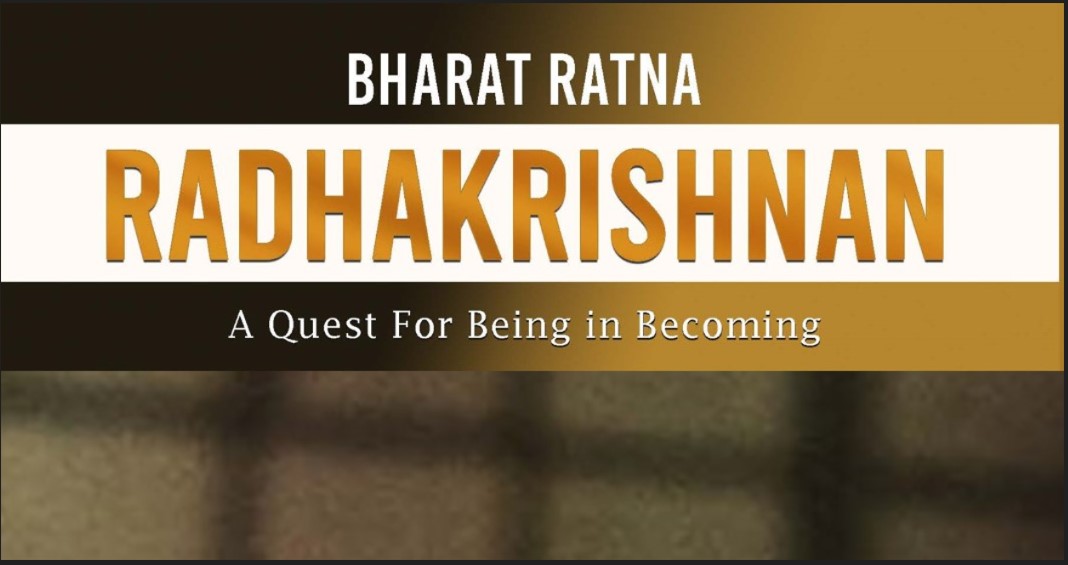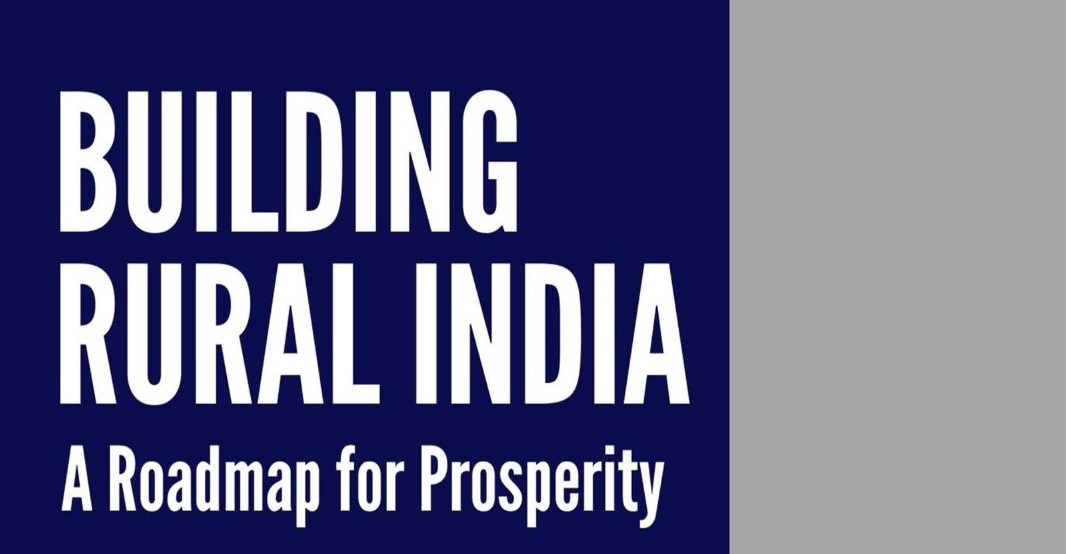Introduction
Dr. S Radhakrishnan was a philosopher par excellence. He advocated for Indian social values, religion and wisdom stock. The ‘teacher-taught’, ‘science religion’, ‘individual-collectivity’ and affection and love are some of the binaries that he was interested in. The paper traces his foundation as to why he became so precise as a master, philosopher and Vice-President.
Dr. Sarvepalli Radha Krishnan became the first Vice President and second President of India. Dr. Krishnan was born on 5 September 1888 in a Telugu-speaking Brahmin family at Tirutani village in Chittoor district of the then Madras Presidency. The village is located about 84 km from Chennai, formerly a part of Andhra Pradesh and is currently in Thiruvallur district of Tamil Nadu. The birthplace of Dr. Krishnan is as famous as a pilgrimage. Dr. Krishnan's forefathers once lived in Sarvepalli village and settled in Tirutani village in the middle of the 18th century. Dr. Krishnan was a boy from a poor but learned family. His father's name was Sarvepalli Virasmiah and his mother's name was Sitamma. His father worked in the Revenue Department. Dr. Krishnan had four brothers and one sister. Radhakrishnan was the second child. The responsibilities of such a large family were handled by his father with great difficulty and care. For this reason, Dr. Krishnan's childhood also passed through a lot of trials and tribulations.
Student Life
Krishnanan's childhood was spent in religious places like Tirutani and Tirupati. The initial eight years of Dr. Krishnan’s life was spent in Tirutani. Despite his father's religious restrictions, Krishnanan was admitted to a Christian Missionary school i.e. Luther Missionary School in Tirupati (1896). His father understood the importance of education. The next four years of his education were in Vellore. After this, he was enrolled at the Madras Christian College, Madras. In fact, Krishnan was a brilliant student since childhood. Dr.Radhakrishnan aptly memorized the Bible during his college studies. For this, he was awarded the distinction of merit. Along with college studies, he studied Swami Vivekananda and other philosophers. In 1902, he passed the matriculation examination and he started getting scholarships. In 1905, he brought the first position in the Faculty of Arts examination. He was well-versed in psychology, history and mathematics. After taking a master's degree in philosophy in 1918, he was appointed assistant professor of philosophy at the Mysore College. Later he became a professor in the same college. Dr. Krishnan became very popular at the international level due to his philosophical articles and research ideas. He was a great scholar of philosophy. His thoughts are important even today. His brilliance was recognised and he continued to get scholarship in college. In fact, he remained a brilliant student and ideal teacher throughout his student and teacher life.
At that time, early marriage was prevalent in the Brahmin families of Madras. To continue with existing practices and keep compatibility with the existing system, Radhakrishnan was married to Sivakamu on 8 May 1903 at the age of 14. Sivakamu's age was only 10 years. After three years of marriage, his wife started living with him. Although his wife was not very educated, she knew Telugu well and could also write in English. In 1907, Sivakamu enrolled in art and graduated with first class, she too had an intrinsic interest in philosophy. In 1908, Radhakrishnan received a daughter, who was named Sumitra. Radhakrishnan received his master's degree in arts in 1909. He obtained a degree in philosophy. During his post-graduation, he continued teaching tuition to earn his livelihood. He wrote some articles on philosophy which remained unpublished. He was also well-versed in Sanskrit and Hindi. His interest in Vedas, Upanishads and religious texts made him a successful and diligent student, researcher and above all an inclusive individual.
Though the influence of education creates a widespread impact on society, education becomes problematic when it is not well integrated with ethics and morality. At that time there were a lot of Christian institutions, especially better educational institutions that shaped the Indian intellectuals. However, the hidden part of the agenda is education does not trickle down alone but also includes the philosophy of the West. The philosophy then shapes the way of life. The result of this was that the importance of Indian culture and deities received reduced space and conservatism. As such, the heterogenetic and orthogenetic features do not provide adequate space for becoming. This particularity created the faintest seismic ramble for India's cultural tradition. Radhakrishnan became uncomfortable with such a wind of ideas and advocated for the Indian culture, history and faith as meaningful as life itself. Radhakrishnan started thinking, rethinking and cogitating on these ideas. Radhakrishnan knew that there was consciousness in the thoughts of any culture. Radhakrishnan showed interest in knowing the ancient truth, along with introspection, studied the relevant subjects and understood the practicality involved in it. He believed that it is true that Indian culture is completely unshakable and infinite. He concluded that Indian culture is based on religion, knowledge and truth which gives the true message to living beings.
Radhakrishnan understood that life was very short, and happiness and sorrow were surrounded the human beings. It was detrimental that everyone had to go through it. Death is an unchanging truth that does not understand the difference between poor and rich, high and low, and so on. He believed that true knowledge is that which ends the ignorance inside us. He believed that a life of simple contentment is better than the arrogant life of the rich, in which dissatisfaction prevails. A calm mind is better than those parliaments and Darbaris where there is a noise of thunderous applause. Dr. Krishnan was successful in understanding the moral values of Indian culture. He wanted to test the criticisms of Indian culture. That is why it has been said that criticisms are the reasons for refinement. The families of Indian society teach the lesson of development of their children, keeping them away from sin, avoiding troubles, and helping the needy. Radhakrishnan understood that equality towards all religions is the distinctive identity of Indian culture, morality, discipline, humanity, equality, faith and patriotism are the goals of Indian culture.
Radhakrishnan considered the whole world just as a school. The fact is that the lesson that formal institutions fail to give, one finds in day-to-day operations in the global world. The global world is continually changing, evolving and experimenting with itself. He believed that education is the only option by which the human mind can fully be utilized. That's why education should be managed in a way that can provide robust impetus to all. In his address at AD Nabra University, UK, he said that human beings are born equal. The whole goal of human history is the salvation of mankind is possible only when the basis of the policies of the countries establish peace in the whole world. Radhakrishnan used to influence youth, students and intellectuals with his expression, effective address, and use of tickling words. He used to urge the students to adopt high moral values in their lives. He used to teach a subject only after studying it deeply. He used to make a subject like philosophy which he elucidated simple, interesting and enjoyable. He used to deal with the students as a teacher in the form of a skilled student, empathetic guardian and close relative to them. He wanted students to be given special treatment by the teacher. If the student was not catching up, more focused attention was to be given to him.
When Radhakrishnan came to India after returning from Europe and America, many renowned universities conferred honorary degrees on him. His distinguished scholarship always became the subject of reverence. Radhakrishnan's first meeting with Pandit Jawaharlal Nehru at the Calcutta Congress session in 1928 informed about his socialistic and egalitarian vision for mankind. Although Radhakrishnan, being a member of the India Educational Service, could not participate in the activities of any political organization, he did not flow from it and here he gave wonderful speeches. In 1929, Manchester University invited Radhakrishnan to give a speech here and here he gave a serious introduction to his intellectualism. Radhakrishnan was the Vice Chancellor of Andhra University from 1931 to 1936, Professor at Oxford University from 1936 to 1952, and Professor at George V College (Kolkata University) from 1937 to 1941. After being Vice-Chancellor of Kashi Hindu University from 1939 to 1948, he joined UNESCO in 1946 as India's representative.
There is no doubt that the whole nation was convinced by Radhakrishnan's intellectualism. After the independence of the country, he was made a member of the constitution-making committee. As a member of the constitution-making committee from 1947 to 1949, Radhakrishnan was also the chairman of various universities. Radhakrishnan's personality was so strong that the then senior freedom fighters wanted him to play a role in the making of the constitution, while Pandit Nehru wished that Radhakrishnan's speech should be held at the time when the historic session of the Constituent Assembly was held. The addresses ended at midnight in the night and after that, the Constitutional Parliament was sworn in under the leadership of Nehru.
Radhakrishnan's role in the context of diplomatic work after independence was commendable and better in the interest of the nation. On the insistence of the senior people, he moved forward with diplomatic relations with the Soviet Union. Then after this, Vijay Lakshmi Pandit was chosen as his new successor. The selection of Radhakrishnan as a diplomat by Pt. Nehru was considered to be surprising. Many people estimated that he was not to be put into the arms of diplomacy as his basic nature was philosophical. But Radhakrishnan proved that he was able to make responsible decisions in the Nahru’s regime. Radhakrishnan proved to be better than all the diplomats appointed in Russia. Radhakrishnan remained disciplined, committed and unconventional even in daily life. For example, diplomatic meetings used to go on for a long time at night, but they would participate only till 10 o'clock in the night and then go to sleep. Even as a teacher, he did not give long lectures or hours for accurate knowledge dissemination. He taught his students with all compassion of mental attraction.
In 1952, Dr. S. Radhakrishnan was elected Vice President after coming from the Soviet Union. The new post of Vice President was created under the constitution. Nehruji again surprised the general public by selecting Radhakrishnan for this role set. People wanted to know the reason why no politician was elected to the post of vice president. He got through it. Radhakrishnan completed the very earnest and ardent job of the Vice-President and Speaker of the Sansad. Every MP was pleased with his behaviour. His role as a Vice President and also as a Speaker of the Parliament brings him into the mainstream to learn a multiplicity of goalposts. All the senior leaders were happy with his behaviour. He was always ready to follow the democratic norms.
The birthday of Dr.Radhakrishnan i.e. 5th September is celebrated as Teachers' Day across the nation. His contributions to the world of ideas are awesome. His own thoughts and his principles are the symbols of today's society and today's educational system.
It must be noted that Dr.Radhakrishnan was given the title of Sir by the British Government in 1931 immaterial of the fact that whether they were respectful. When he became the Vice-President, Dr.Rajendra Prasad, the first President of independent India, awarded him the country's highest award i.e. Bharat Ratna in 1954 for his great philosophical and educational achievements.
Radhakrishnan emphasized the knowledge of the otherworldly rather than the information and technical ability of this world. Knowledge - does not accept duality as an end, but considers it as a means to achieve a higher life and outlook, they accept that in modern society Knowledge and technical skills are important, but they should act as a means to build a higher vision. He considered science to be helpful in the knowledge of the spiritual world. The way life develops from matter, intelligence from life and consciousness of values from intelligence. In the same way, divine experience developed from the consciousness of values. Human life developed from semi-human. Similarly, divine life developed from human life. This is the higher life or the highest spiritual ideal. This is the main purpose of education.
According to Radhakrishnan, self-knowledge helps bring a person in contact with the entire humanity. Also, it is helpful in the fulfilment of human aspirations and hopes. Self-knowledge is achieved in an environment of freedom. Therefore, education encourages a person to think, brainstorm and understand and give a better chance. He considered spiritual freedom as the real freedom. He said that the person is the centre of the world. The expression of life is the true self-rule of the human soul. Radhakrishnan had unwavering faith in the spiritual power of man. He placed science, reason and tradition above spiritual power. He believed that the periphery of world science looked at the external shape of objects, and the diversity and polymorphism of the universe. But the centre of existence, from where all things come and go, can be realized only by solitary contemplation.
Dr. Radhakrishnan considered education as a life-long process, in which human learns from the teacher, learn by themselves, learn from life and its experience, and learn at every step at every moment, in his home, communities, letter learns through magazines and electronic techniques. Thus he learns continuously throughout his life. In other words, according to Radhakrishnan, 'whole life is experience', the reason for this is education. The thoughts and theories of Radhakrishnan present a holistic vision of humanity where science, religion and tradition are in amicable interaction.
Reference
1. Anand, V. (2011).Dr RadhaKrishnan’s contribution to contemporary thought, mainstream, Vol. L, December 24, retrieved on 6 Feb 2015.
2. Dr Santosh Kumar Behera (2015) Educational thought of SarwpalliRadha Krishnan international research journal of interdisciplinary & multidisciplinary studies (IRJIMS) ISSN:2394-7969(online)vol-1,issue-1.
3. International journal of creative research thoughts, ISSN:2320-2882, vol- 11, issue 3 March 23.
4. The Hindu view of life: Dr SarwpalliRadha Krishnan
5. Search for truth: Dr SarwpalliRadha Krishnan



